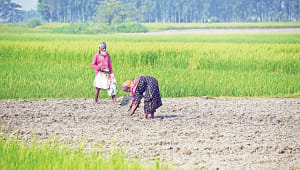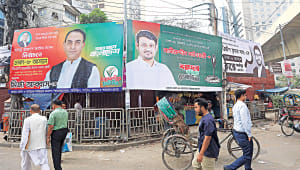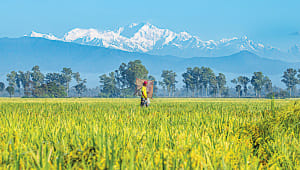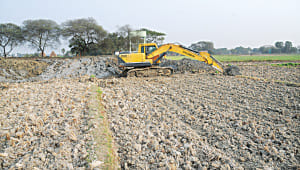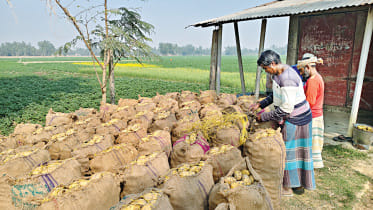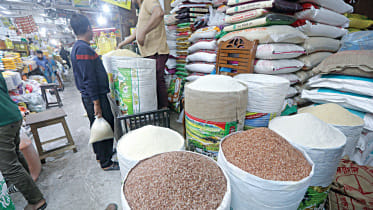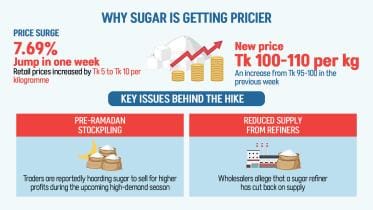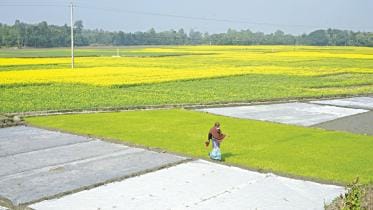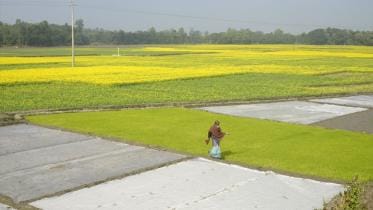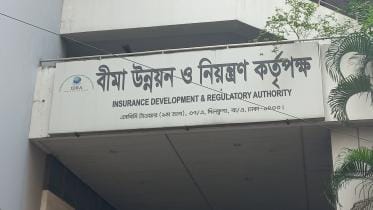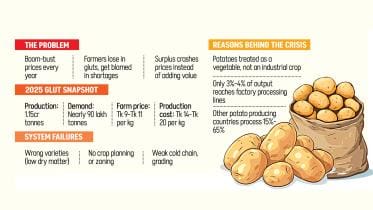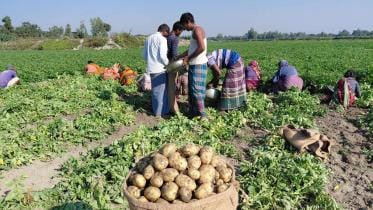Incentive fails to reach potato farmers hit by throwaway prices
After failing to shield potato farmers from a price crash last season, the government is now struggling to deliver cash incentives even as harvesting of this year’s early varieties has already begun, raising fresh concerns about policy delays and continued neglect of growers.
25 January 2026, 00:48 AM
Govt issues fresh permits to import 2 lakh tonnes of rice
The food ministry has issued fresh permits allowing private traders to import 2 lakh tonnes of parboiled rice, amid comfortable public food stocks, an above average Aman harvest forecast and no sharp spike in the food staple prices.
22 January 2026, 00:00 AM
Govt to curb pesticide use in seven haor districts
The initiative aims to protect fish and haor biodiversity
15 January 2026, 00:00 AM
Cold wave takes a toll on Boro seedbeds
Farmers say achieving production target will be harder as rice drives half of food inflation
14 January 2026, 00:00 AM
Dhaka eateries hit by LPG supply crunch, price hike
Restaurant owners in Dhaka are grappling with a deepening liquefied petroleum gas (LPG) crisis, marked by soaring prices and constrained supply despite official data showing steady imports and adequate stock levels.
9 January 2026, 05:50 AM
US Visa bond: Visitors to be hit the hardest
Bangladesh’s addition to a US visa bond list could disrupt travel and trade, potentially hurting small businesses and ordinary visitors, experts said.
9 January 2026, 04:00 AM
Bangladesh resumes US corn imports after 8 years
Import resumes amid lower prices and trade-balancing push
7 January 2026, 18:00 PM
Onion prices fall as 52,000 tonnes were imported in a month
The steady imports have led to a decrease in retail onion prices in the country
5 January 2026, 18:00 PM
Uncertainty hit life insurance in 2024, non-life grew
Life insurance companies collected Tk 11,389 crore in premiums last year, down 1.05 percent year-on-year
4 January 2026, 18:00 PM
Jute sector losing edge due to high costs, old technology
Says chairman of jute spinners’ association
3 January 2026, 18:00 PM
No major shortage, yet sugar prices rise ahead of Ramadan
Some traders linked the recent price rise to stockpiling ahead of Ramadan
3 January 2026, 18:00 PM
Chilly spell raises disease risk for winter crops
As a cold wave continues to grip the country, agricultural experts are warning that certain crops could face serious risks from the unusual weather, while others may benefit and thrive under these conditions.
1 January 2026, 18:00 PM
Chilly spell raises disease risk for winter crops
As a cold wave continues to grip the country, agricultural experts are warning that certain crops could face serious risks from the unusual weather, while others may benefit and thrive under these conditions..According to a press release issued today by the Bangladesh Agro-Meteorologic
1 January 2026, 15:16 PM
Gold shines through 2025 amid price volatility
If there were a “metal of the year” award, gold would be a strong contender, maintaining an exceptional run even on the final trading day of 2025..Businesspeople said the retail gold market in Bangladesh has remained unstable over the past few months, driven by fluctuating global prices, s
31 December 2025, 15:27 PM
Insurance surveyors banned from disclosing client info
The new rules came into effect on December 25
30 December 2025, 18:00 PM
Insurance surveyors banned from misusing client info
Non-life insurance surveyors and loss assessors will no longer be allowed to use or disclose confidential information obtained through their professional work for personal gain or for the benefit of anyone other than the insurer or the insured, under Bangladesh’s first-ever regulation governing
30 December 2025, 14:46 PM
Potato Paradox: Just another curry on the rice plate? This will not solve the price problem
Bangladesh largely views the crop as just another vegetable eaten with rice
27 December 2025, 18:00 PM
Food ads to be barred from doctor endorsements
The changes are expected to reshape how food products are marketed
21 December 2025, 18:00 PM
Farmers of early varieties of potato hit by old stock glut
This year, the price gap between new and old potatoes has narrowed significantly
20 December 2025, 18:41 PM
Farmers of early potato varieties hit by old stock glut
Farmers who cultivated early varieties of potatoes are once again incurring losses as prices of newly harvested tubers remain unusually low due to an oversupply of older stock in the market.
20 December 2025, 18:00 PM





